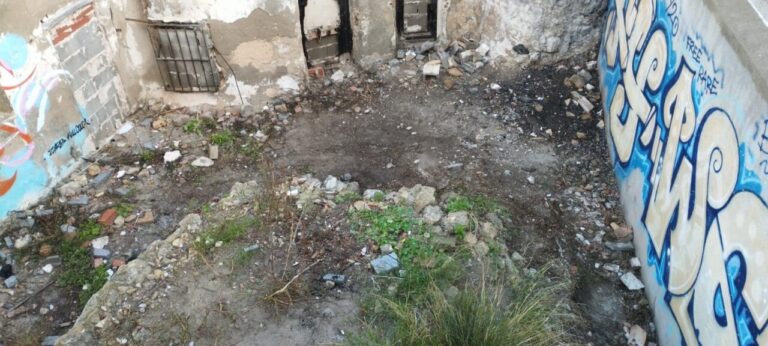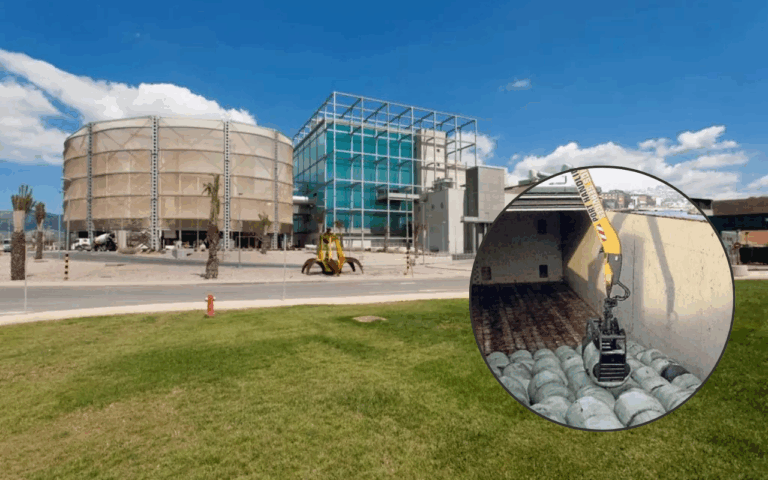The Health Area of Ibiza and Formentera reported this Saturday that the situation in the emergency room of the Can Misses hospital is currently under control, with no patients awaiting admission to the ward. In addition, they confirmed that the center has 26 occupiable beds for hospitalization and 17 in the ICU, which adds up to a total of 43 beds available to face possible admissions during the weekend. These statements come after a week marked by complaints from unions such as Simebal (Medical Union of the Balearic Islands) and healthcare staff, who warned of a collapse in the service due to the increase in cases of flu and Covid.
Overcrowding and chaos in the ER
The critical situation in the Emergency Department began to become evident at the beginning of this week. On Wednesday 8, service workers warned of extreme overcrowding, with more than 20 patients waiting for beds on the ward at specific times. According to them, hospital discharges during the Christmas holidays were minimal, which contributed to a bottleneck in the flow of care. The staff described the situation as “playing tetris”, looking for space to accommodate patients. They even went so far as to vacate examination rooms to make room for beds, but it was still not enough. According to internal sources, one patient waited up to three days to be transferred to a room. The Medical Union of the Balearic Islands confirmed that on Thursday 9 there were still 21 patients waiting, although the number was progressively reduced during the day. They also described the problem as “chronic” and assured that it has been recurring for more than 20 years on the same dates.
Contingency plan measures
The hospital’s management highlighted the implementation of the contingency plan to alleviate the pressure on healthcare. According to the Health Area, this plan includes:
- 30 additional beds for hospitalization.
- Hiring of 17 professionals (a physician, nursing staff and orderlies).
- Expediting hospital discharges, to prepare rooms immediately.
- Reduction of hospital scheduling, with the aim of freeing up more beds for the ER.
- Strengthening of home hospitalization and referral of patients to subsidized centers.
These actions, according to management, have allowed the hospital to have sufficient beds on Saturday, both on the ward and in the ICU. However, the unions have criticized the delay in activating these measures, pointing out that they should have been implemented earlier to avoid the initial collapse.
Criticism and testimonials to a collapsed hospital
In recent hours, patients and relatives of the Can Misses hospital have expressed their discomfort through social networks, denouncing various problems related to medical care and the saturation of the center. The criticisms point especially to the long waiting lists, the delay in appointments and the saturation in the emergency service, a situation they describe as “shameful”. One of the most outstanding comments reflects the harshness of the situation experienced in recent days: “What we have lived these last 72 hours in the ER has been brutal. It looked like a war hospital. The professionals were doing what they could but they could not avoid offering a third-world service. I will never forget it,” said a relative, describing the scenario as unsustainable. Another commented: “I waited more than three months to be called for some studies I urgently needed, and the answer was that I had to wait even longer. It is a disaster, and in the meantime, we continue to pay Social Security as usual.” Others highlight the saturation in the consultations and the lack of personnel: “The population is growing, but the hospital is not. There are more patients than professionals to attend them”.
The point of view of trade unions and health care workers
From the nursing union SATSE, Carmen Ortiz, delegate in the Balearic Islands, expressed her concern about the working conditions of nurses and the saturation they experience in the ER: “We are late, nine days. It is urgent. The situation is dramatic, chaotic in the ER. It is essential that nurses can work with dignity and treat patients as they deserve, in decent conditions. For his part, Carlos Rodriguez, spokesman for the medical union Simebal in Ibiza, pointed out that the problem of overcrowding is a historical constant in the hospital: “The problem lies in the lack of foresight, but not now, it has been there all my life. I have been an emergency physician for 40 years and we have always had the same problem. You see the patient, you decide to admit him, you talk to the specialist, but it doesn’t happen because there is no availability”. In addition, Estela Terrer, a nurse by profession and PSOE councilor in the City Council of Ibiza, was also critical of the management of the Health Area: “And the contingency plan! A peak after the holidays was foreseeable. Improvisation. This is what we are used to lately in this Health Area”.










